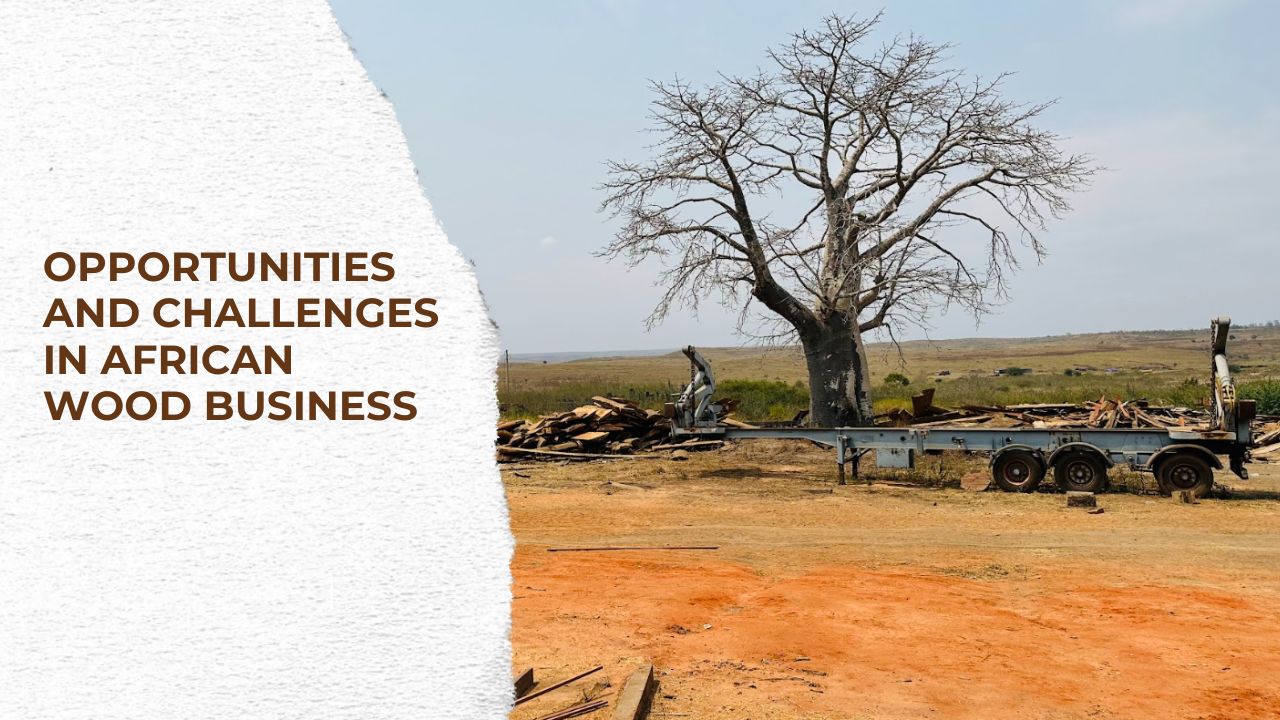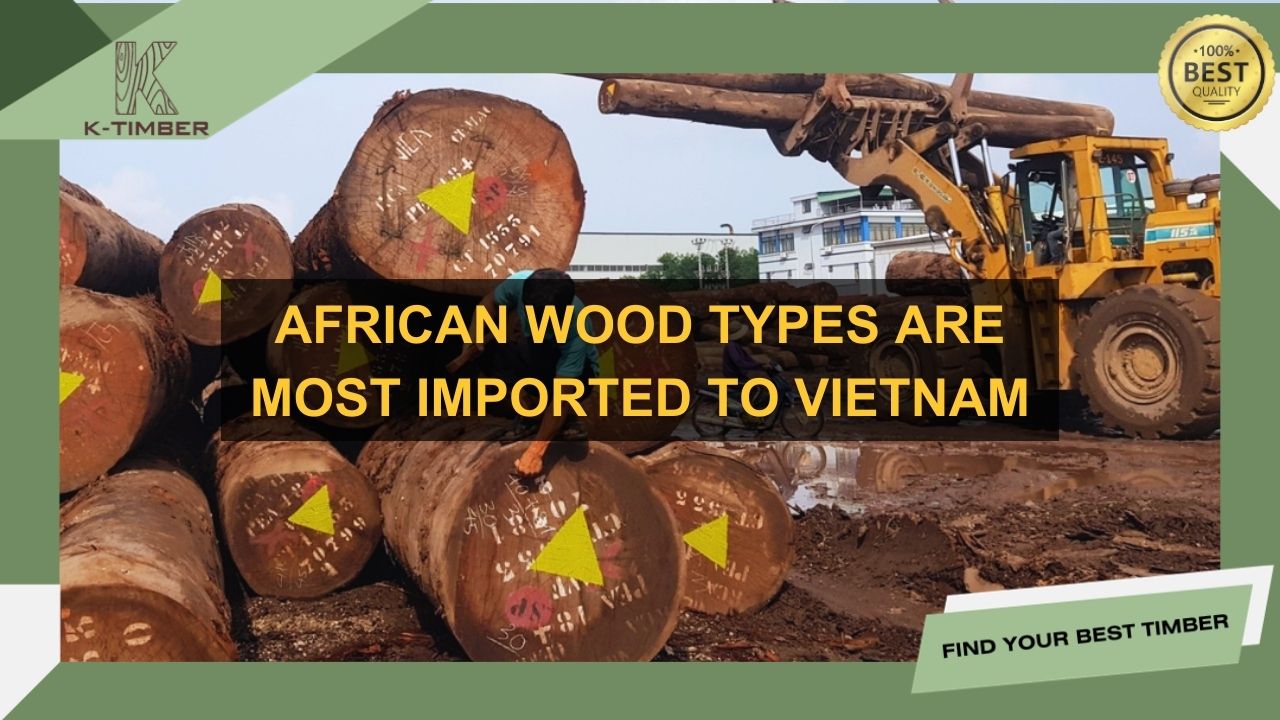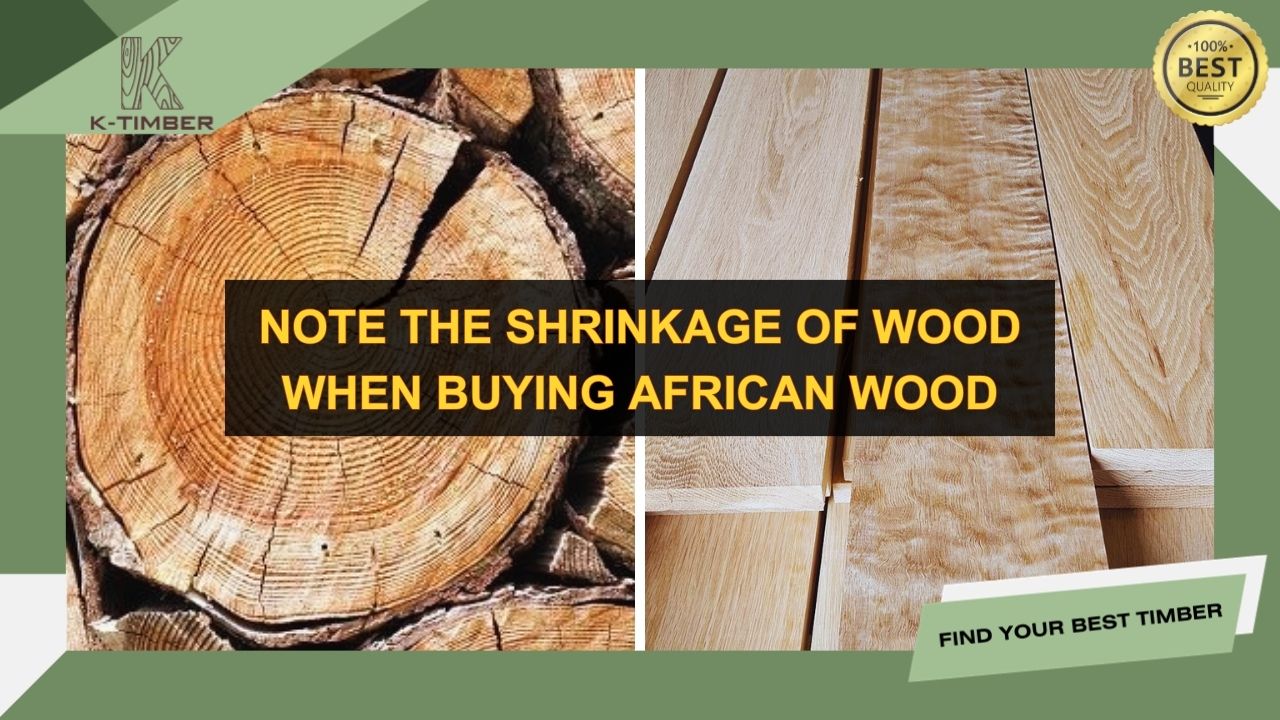African wood business is an attractive and potential field. With rich and diverse wood resources, Africa has attracted the attention of businesses globally. In this article, let’s explore with K-TIMBER the history, market trends and benefits of trading in African wood. Besides, we will also calculate costs and profits, along with suggesting effective business strategies.

Table of Contents
General introduction to the African wood market
The African wood market, with an estimated value of $12 billion by 2023, is opening up significant investment opportunities. This continent, accounting for more than 17% of the global forest area, is famous for its supply of rare woods such as Padauk, Mahogany, Teak, and Ebony, which not only serve domestic demand but are also widely exported to Europe, America, and Asia. Specifically, wood exports from Africa to these markets grow steadily, with an annual growth rate of about 5% from 2018 to 2023. This reflects high demand and positive evaluation from the market. global quality of African wood.
K-TIMBER, an industry leader, has demonstrated its ability to succeed through sustainable forest resource utilization, achieving revenue of USD 500 million in 2023. This not only demonstrates growth potential strength of the African timber market but also a testament to the fact that responsible business can be highly profitable. For investors seeking opportunities in an industry with stable and long-term growth, African timber represents an attractive option.

History and Significance of the African Wood Industry
The African wood industry, with its rich history and important position in the global economy, has become an indispensable pillar in the development of this continent. For those interested in exploring and investing in the timber market, understanding the history and importance of this industry is a must-have first step. This prologue takes us through a journey to discover this precious resource, opening the door to a world of opportunity, while emphasizing its role in shaping the economic landscape of diversity. African form.
Historical background of the wood industry in Africa.
- Throughout history, wood from African forests has contributed to ship construction, furniture, architecture and other purposes, demonstrating the value and diversity of this resource. During the 17th and 18th centuries, the timber trade between Africa and Europe began to flourish, with the export of precious woods such as Mahogany and Ebony becoming an important part of the colonial economy.
- The 20th century saw an increase in global demand for African wood. Between 2000 and 2020 there was significant growth in timber production and exports, with some countries such as Cameroon and Gabon and Angola doubling their timber exports.
- Today, with increasing emphasis on sustainable forest management, Africa is trying to find a balance between utilizing its precious wood resources and protecting the natural environment for future generations.

The role of African wood in the global economy.
The African wood industry, which accounts for more than 17% of global forest area, plays an important role in the continent’s economic and environmental conservation. African forests provide precious woods such as Padauk, Mahogany, Teak, and Ebony, which not only boost the local economy but are also widely exported, with an annual growth rate of about 5% from 2018 to 2023. This development, along with the challenge of conservation, requires a balance between economic growth and environmental protection. The application of sustainable harvesting methods becomes a core factor to ensure that wood resources can continue to support economic development without negatively affecting the natural environment and biodiversity.
Opportunities and challenges in African Wood Business
The African wood business is becoming a hotbed of opportunity and growth, thanks to its rich and diverse wood resources. With the global market increasingly hungry for high-quality wood products, Africa not only provides a valuable source of supply but also opens up new directions for sustainable development. Below will mention the main factors that the African wood industry brings, from strengths to opportunities, as well as challenges to help you have more basis to achieve success in the African wood business.
Opportunities in African wood business
- Abundant Natural Resources: Africa accounts for over 17% of the world’s forest area, offering a diverse range of precious woods such as Padauk, Pachyloba, Iroko, Mahogany, Teak, and Ebony. African forests provide approximately 30% of the global hardwood export, highlighting the continent’s position in the international timber market.
- Global Market Demand: The global timber market is expected to grow at an annual rate of 5% from 2018 to 2023, with strong demand from major markets like Europe, the US, and Asia. This creates a vast export market for African timber, especially for rare and high-quality wood products.

- Export Potential: Timber exports from Africa to Europe and North America have seen significant growth, with countries like Angolo, Cameroon and Gabon leading in exports. This growth not only demonstrates the attractiveness of African timber on the international stage but also opens up large opportunities for producers and exporters in the region.
- Sustainable Development and Social Responsibility: Adopting sustainable harvesting methods not only helps protect the environment but also enhances the brand value of African timber products. The increase in sustainable certifications, such as FSC, opens new doors to international markets with high environmental standards, affirming a commitment to sustainable development.
- Infrastructure Improvement and Government Support: Many African governments are investing in improving infrastructure and facilitating timber export conditions, including support policies for businesses. This support not only optimizes production and export processes but also encourages investment in the timber industry, thereby expanding business opportunities for companies within and outside Africa.

Challenges of the African wood business
- Infrastructure and Logistical Constraints: According to the African Development Bank, only about 34% of rural Africa has access to roads in good condition, significantly impacting the timber industry’s ability to transport products efficiently. Port congestion can add up to 25% in additional shipping times, increasing costs and reducing competitiveness.
- Deforestation and Environmental Concerns: The Food and Agriculture Organization (FAO) reports that Africa experienced an annual deforestation rate of 3.9 million hectares between 2010 and 2020, contributing to biodiversity loss and affecting the sustainability of timber resources.
- Access to Finance: The World Bank highlights that less than 20% of African SMEs have access to formal credit, limiting their ability to invest in sustainable practices and expand operations in the timber sector.
- Market Fluctuations and Price Volatility: Timber prices can vary significantly, with some African hardwood species experiencing price swings of up to 15-20% within a single year, influenced by global demand, trade policies, and economic conditions.
- Skilled Labor Shortage: The United Nations Economic Commission for Africa notes a critical gap in technical and vocational education and training across the continent, affecting industries including timber. This gap hinders productivity and innovation in sustainable forestry and wood processing techniques.
- Competition from Synthetic and Alternative Materials: The global market for wood-plastic composites, a major competitor to natural timber, is expected to reach $8.76 billion by 2023, growing at a CAGR of 12.4% from 2018 to 2023, indicating significant competition for natural wood products.
The future of the African wood business
The future potential of wood trading in Africa is unfolding thanks to abundant forest resources and the global shift towards sustainable products. With the application of new technology in wood management and processing, along with the growth of the middle class, the demand for wood in the African domestic market is increasing. This, combined with the development of supporting industries such as furniture and paper manufacturing, promises to create added value and employment, while promoting economic growth. A focus on sustainability and sustainable certifications like FSC not only helps protect the environment but also enhances reputation and expands export markets for African wood. However, capitalizing on this potential requires cooperation between governments, businesses and the international community to address current challenges and ensure the sustainable and responsible development of the African wood industry. .
K-TIMBER – The leading unit in African wood exports
Positioned as a top-quality wood exporter, distributor, and supplier from Africa, K-TIMBER has established itself in the global wood market. Possessing over 20 years of experience in the industry and delivering wood to more than 30 countries worldwide, K-TIMBER prides itself on being one of the world’s leading wood suppliers.

K-TIMBER offers an array of wood types such as Doussie, Mussivi, Iroko, Sapele, Pachyloba, and Eucalyptus, guaranteeing a high-quality wood ratio of up to 90%. All our products adhere to FAS standards, ensuring optimal durability, quality, and aesthetic appeal.
With the capability to supply up to 20,000 m3 of wood monthly from 5 sawmills in Angola, we are fully equipped to meet any customer demand for quality and quantity. Our close relationship with the Angolan government ensures a stable and high-quality wood source, as well as streamlined export procedures. Moreover, our commitment to sustainable forestry practices underscores the importance of responsible wood extraction and environmental protection.










![[K-Timber] Blog Post](https://k-timbers.com/wp-content/uploads/2024/09/Ban-sao-cua-K-Timber-Blog-Post-Boder.png)